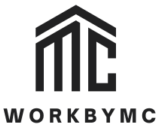The early years of a child’s life represent a critical window for development, when the brain forms connections at an unprecedented rate. Quality early childhood programs recognize this pivotal period and create environments that nurture growth across multiple developmental domains. These programs go far beyond basic childcare, serving as comprehensive learning ecosystems that prepare children for lifelong success.
Academic Readiness Through Play-Based Learning
Quality early childhood programs understand that young children learn best through exploration and play. Rather than forcing formal academic instruction, these programs embed learning opportunities into engaging activities that feel natural to children. Through storytelling, singing, and interactive games, children develop pre-literacy skills like phonemic awareness and letter recognition. Mathematical concepts emerge through counting games, pattern activities, and hands-on manipulatives that make abstract ideas concrete.
Science exploration happens through nature walks, simple experiments, and discovery centers where children can observe, question, and investigate their world. Art activities not only foster creativity but also develop fine motor skills essential for writing. These integrated approaches ensure that children build strong academic foundations while maintaining their natural curiosity and love of learning.
Social and Emotional Development
Perhaps one of the most crucial aspects of quality early childhood programs is their focus on social and emotional learning. Children learn to identify and express their feelings appropriately, developing emotional vocabulary that helps them communicate their needs effectively. Through guided interactions with peers, they practice sharing, taking turns, and resolving conflicts peacefully.
These programs create safe spaces where children can practice empathy by considering others’ perspectives and feelings. They learn to form friendships, navigate group dynamics, and understand the importance of kindness and respect. Teachers model appropriate social behaviors and provide gentle guidance when conflicts arise, helping children develop the emotional intelligence they’ll need throughout their lives.
Language and Communication Skills
Quality programs immerse children in rich language environments where communication flourishes. Through conversations with caring adults, children expand their vocabularies and learn to express increasingly complex ideas. Story time introduces them to narrative structure, while group discussions teach them to listen actively and contribute meaningfully to conversations.
These programs often expose children to multiple languages, recognizing the cognitive benefits of multilingual development during these formative years. Whether through bilingual instruction or cultural celebrations, children gain appreciation for linguistic diversity while strengthening their own communication abilities.
Critical Thinking and Problem-Solving
Rather than providing all the answers, quality early childhood programs encourage children to think critically and solve problems independently. Through open-ended activities and thoughtful questioning, educators guide children to explore multiple solutions and think creatively about challenges.
Building activities with blocks teach spatial reasoning and engineering concepts. Puzzles develop logical thinking and persistence. Art projects with various materials encourage innovative approaches and creative problem-solving. These experiences build confidence in children’s ability to tackle new challenges and think outside conventional boundaries.
Physical Development and Health Awareness
Quality programs recognize that physical development supports cognitive growth. Through both gross motor activities like running, jumping, and climbing, and fine motor tasks like cutting, drawing, and manipulating small objects, children develop the physical skills necessary for academic success.
These programs also introduce healthy habits early, teaching children about nutrition, hygiene, and the importance of physical activity. Gardens and cooking activities connect children to healthy food sources while developing their understanding of where food comes from and how to make nutritious choices.
Cultural Awareness and Diversity Appreciation
In our increasingly connected world, quality early childhood programs celebrate diversity and help children understand different perspectives. Through books, music, art, and celebrations from various cultures, children learn that differences are something to appreciate rather than fear.
These experiences build the foundation for inclusive thinking and help children develop respect for all people, regardless of background, ability, or appearance. Such early exposure to diversity creates more empathetic and globally minded individuals.
Independence and Self-Regulation
Quality programs gradually foster independence by giving children age-appropriate responsibilities and choices. Children learn to manage their belongings, follow routines, and make decisions within structured environments. These experiences build self-confidence and the executive functioning skills necessary for future academic success.
Building Tomorrow’s Citizens
The impact of quality early childhood programs extends far beyond individual children. By nurturing well-rounded, emotionally intelligent, and academically prepared young people, these programs contribute to stronger communities and a more capable workforce. The skills learned in these early years—from basic literacy to complex social navigation—form the foundation upon which all future learning builds. For more information, contact a learning center like Belvoir Christian Academy.

